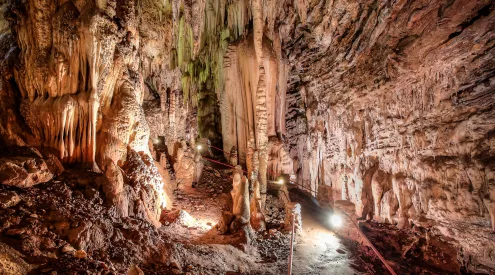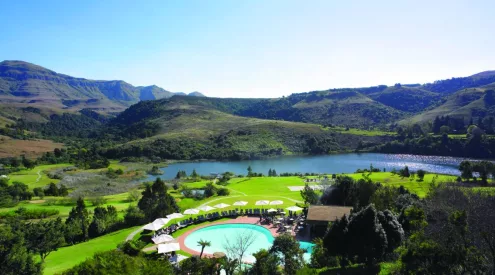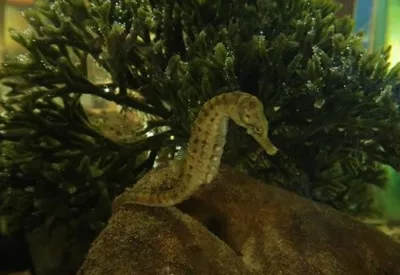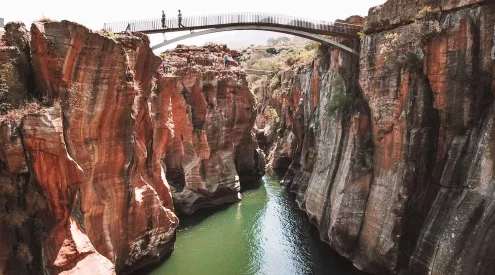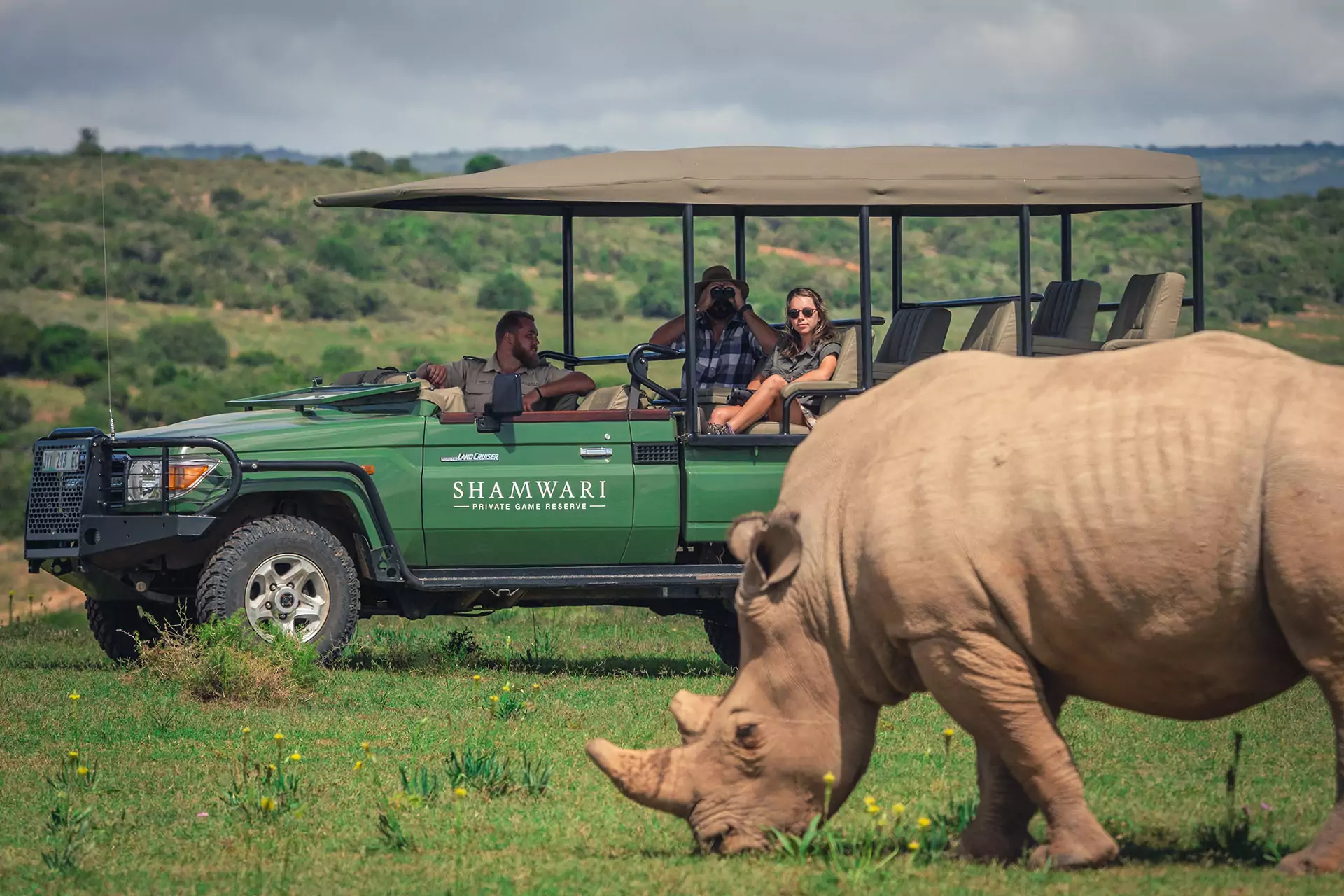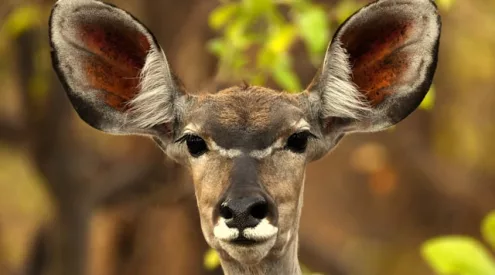If we were to ask our guests what animal springs to mind when thinking of their stay with us in Savute, the answer would, without a doubt, be elephants.
Sitting at the lunch table we watch as the elephants appear in large numbers from the thickets on the southern bank. As they approach the water their trunks navigate through dry tress and bare ground in search of precious food. At this time of the year good food is scarce. Some of them have now discovered the remaining greenery on the trees around camp. Going against their natural instincts to avoid human inhabitation, they find their way into camp to feed. Guests love it. Getting stuck in your tent while Africa’s largest mammal rips at the tree next to your canvas walled is a good story to take home.
Standing on the one side, he stretches his trunk over the walkway to strip the mopani tree on the opposite side; knocking over the balustrades in the process. After several days of walkway maintenance I realised we fighting a loosing battle. So I changed our strategy and took away the balustrades. Removing them has now given the elephants freedom to step over the walkway and get between the tents to feed with minimal damage. Happy elephant! Happy camp!
Out on game drives the sightings continue. Our enthused guests tell thrilling tales of their elephant encounters. They speak of massive herds moving across the open grasslands towards the waters edge. Standing together the herds drink in the mid afternoon heat; paying little attention to the vehicle that’s strategically parked for the best view. After a thirst quenching drink they joyfully cover themselves in dust before continuing their journey. To where? Who knows, but they will return.
On an afternoon boat cruise with a photographic group I enjoyed one of my best elephant encounters to date. Before I continue I must explain. Earlier this month we received our first power boat. It’s an 8 seater aluminium cruiser which will give our guests a new perspective of the Savute Channel. Just 4 years ago we were driving through the channel’s dry river bed; now we’re exploring its course on crystal clear waters. Incredible!
Now back to my story. Using his expert skills, our boat captain Chaplin positioned the boat up stream, the sun on our backs, perfect for photography. On the bank the herd approached with purpose. We cut the motor to avoid disturbing them and slowly drifted closer. Readying the cameras, one fitted with the wide angle and the other with the 100-400 mm lens, I positioned myself and waited for the right moment.
Arriving at the waters edge they dipped their trunks like children testing the pool water with a toe before diving in. Satisfied with the temperature they waded through the reed bed and into to the deeper waters. Behind the matriarch an adolescent clung to her tail for assistance, the water too deep for its short legs to touch the bottom. Gracefully the small herd crossed the channel in single file. It was awe-inspiring. With the unique angle offered by the position of the boat, and the specialised advice offered by pro-wildlife photographer we were able to capture some impressive images. It is clear that the arrival of the boat has added a new dimension to our safari offering.
But elephants are not the only sightings that have been enjoyed from the water. On a calm afternoon cruise a leopard was seen just up stream from camp. She is a young female and has been seen on several occasions not far from camp. Just yesterday she was seen again. Only this time she was with an adult female, presumably her mother. The adult had killed an impala and had it in a dead tree. Guests watched as she called for her daughter who eventually appeared from the bushes. They watched as the two of them affectionately played together in the warmth of the afternoon sun.
We heard the guides talking on the camp radio about the sighting. Unable to contain our excitement we snuck out of camp to meet the leopard. We found the two of them peacefully sleeping under a tree. Clearly they had eaten enough for the day and where now simply enjoying each others company. The young leopard has been named Boitumelo, meaning joy or happiness and her mother Bonolo, translated as “˜easy going’ because of her calm nature. For a brief moment Boitumelo sat up, yawned and glared at us before flopping back down to sleep. It was just enough action to snap a couple pictures of her cheeky face before getting back to camp. We later found out from the guides that the two had a tussle in the tree and Bonolo, the larger female, backed off. A sign that Boitumelo is growing up and may soon venture off on her own.
Last night I went to sleep with the intention of sleeping in for as long as possible. But it seems the elephants have different plans for me. Kay, my fellow manager, woke me with the thrilling news that that there is no water in camp – the elephant have broken the water pipes near tent 2. It’s back maintenance work for me and my team. So much for Happy Elephant! Happy Camp!




